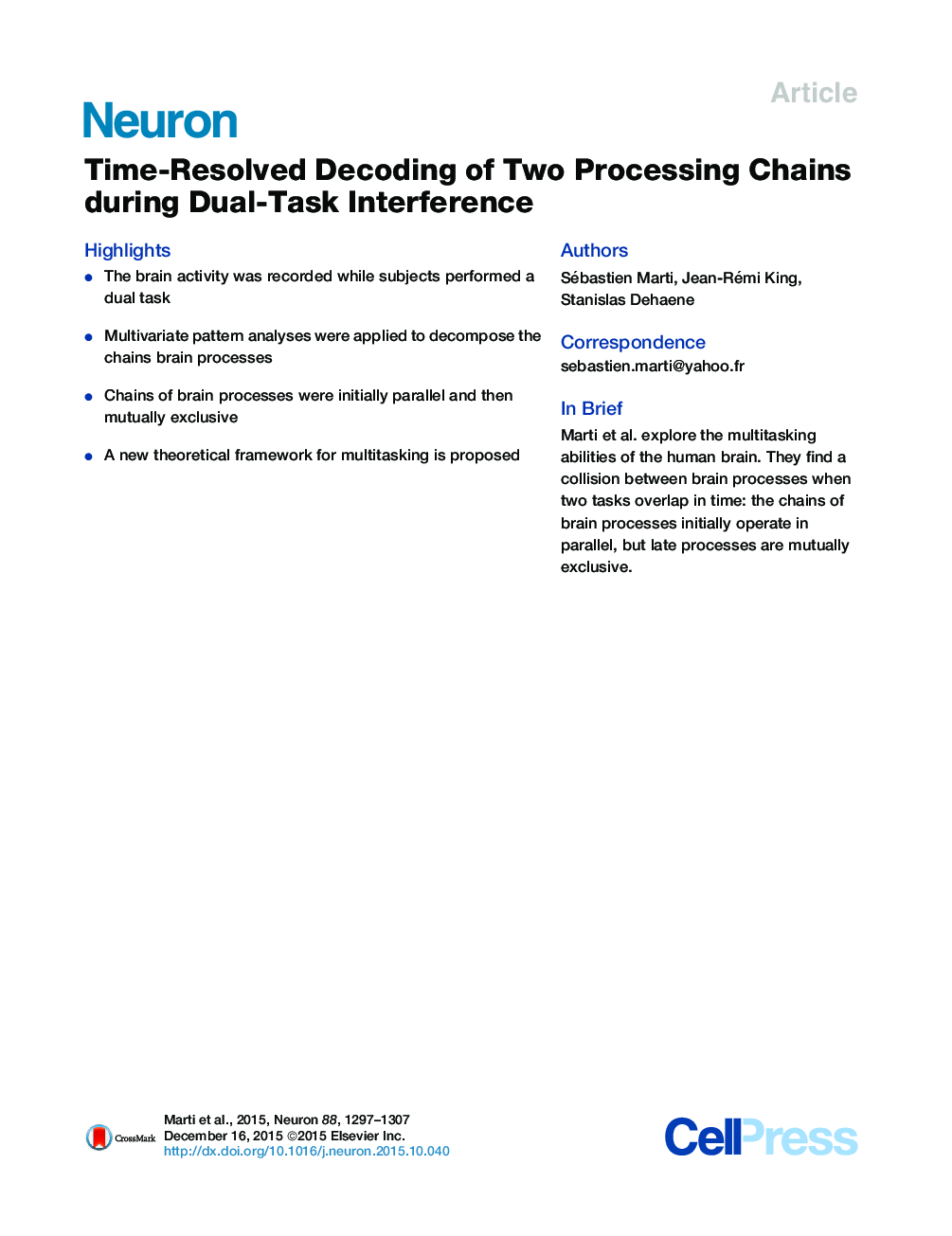| Article ID | Journal | Published Year | Pages | File Type |
|---|---|---|---|---|
| 4320763 | Neuron | 2015 | 11 Pages |
•The brain activity was recorded while subjects performed a dual task•Multivariate pattern analyses were applied to decompose the chains brain processes•Chains of brain processes were initially parallel and then mutually exclusive•A new theoretical framework for multitasking is proposed
SummaryThe human brain exhibits fundamental limitations in multitasking. When subjects engage in a primary task, their ability to respond to a second stimulus is degraded. Two competing models of multitasking have been proposed: either cognitive resources are shared between tasks, or they are allocated to each task serially. Using a novel combination of magneto-encephalography and multivariate pattern analyses, we obtained a precise spatio-temporal decomposition of the brain processes at work during multitasking. We discovered that each task relies on a sequence of brain processes. These sequences can operate in parallel for several hundred milliseconds but beyond ∼500 ms, they repel each other: processes evoked by the first task are shortened, while processes of the second task are either lengthened or postponed. These results contradict the resource-sharing model and further demonstrate that the serial model is incomplete. We therefore propose a new theoretical framework for the computational architecture underlying multitasking.
